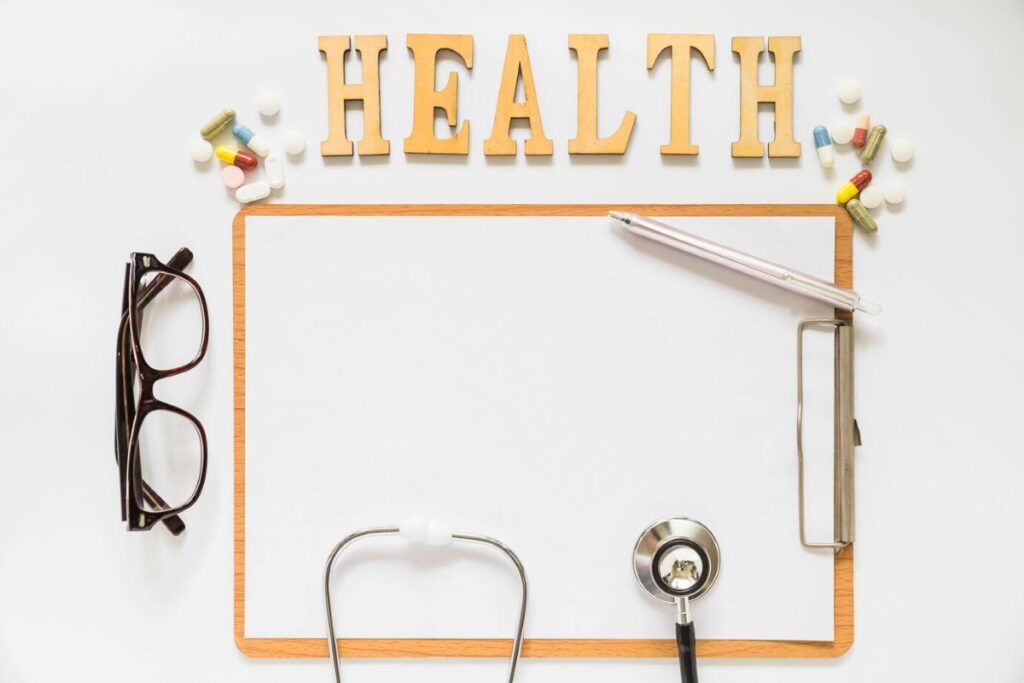Keeping up with preventive health measures can do wonders for your overall well-being, not to mention the added benefit of catching potential health issues early on. It’s so important to ensure we are optimizing our health and making conscious efforts that will create lasting impacts. For example, being aware of heart disease in your family history could help you make lifestyle choices that may prevent heart disease down the road. These measures can include maintaining a healthy weight, eating a lower-fat diet, being or becoming smoke-free, and maintaining a healthy blood pressure.
You may even want to take it a step further and go down the path of DNA health testing. Genetic tests like 23andMe can reveal through DNA what conditions you may be predisposed to. These tests can often provide powerful insights that may lead you to course correct unhealthy habits that could lead you to be at a high risk for developing diabetes.
A part of preventative health care includes getting routine health screenings or health checks done regularly. Companies like Facebook are even doing their part to ensure that people are getting their regular screenings through tools like Prevention Health.
Facebook partnered with the American Cancer Society, American College of Cardiology, American Heart Association and US Centers for Disease Control and Prevention to build the tool with the most up-to-date, accurate resources and information. The tool then provides personalized recommendations for what you should consider as part of your preventive care for heart disease, cancer, and seasonal flu. Source: Facebook Preventative Health.
Additional preventative health screenings that may be beneficial for you based on your age and family history include:
- Breast Cancer Screening
Mammogram – A mammogram is an X-ray of the breast. For many women, mammograms are the best way to find breast cancer early, when it is easier to treat and before it is big enough to feel or cause symptoms. Having regular mammograms can lower the risk of dying from breast cancer. Currently, a mammogram is the best way to find breast cancer for most women of screening age.
- Colorectal Cancer Screening
Colonoscopy – A colonoscopy allows the doctor to look inside the entire rectum and colon while a patient is sedated. A flexible, lighted tube called a colonoscope is inserted into the rectum and the entire colon to look for polyps or cancer. During this procedure, a doctor can remove polyps or other tissue for examination. The removal of polyps can also prevent colorectal cancer.
Cervical Cancer Screening
The HPV test and the Pap test can help prevent cervical cancer or find it early.
- The HPV test looks for the virus (human papillomavirus) that can cause cell changes on the cervix.
- The Pap test (or Pap smear) looks for precancers, cell changes on the cervix that might become cervical cancer if they are not treated appropriately.
Both tests can be done in a doctor’s office or clinic. If you are getting a Pap test, the cells will be checked to see if they look normal. If you are getting an HPV test, the cells will be tested for HPV. Source: Centers for Disease Control and Prevention.
Blood Pressure Screening
Measuring your blood pressure is the only way to know whether you have high blood pressure. High blood pressure usually has no warning signs or symptoms, and many people do not know they have it.
You can get your blood pressure measured:
- By a healthcare team member at a doctor’s office.
- At a pharmacy that has a digital blood pressure measurement machine.
- With a home blood pressure monitor that you can use yourself. Source: Centre for Disease Control and Prevention.
Diabetes Screening
You will need to get your blood sugar tested by your doctor to find out for sure if you have prediabetes or type 1, type 2, or gestational diabetes. If you have a history of diabetes in your family, it is even more important to get tested and take the necessary precautions through lifestyle changes to reduce your chances of getting diabetes in the future. Source: Centre for Disease Control and Prevention.
Preventative Therapy
Therapy can be a preventative tool to help sustain mental wellness throughout your life. Seeing a psychotherapist or psychologist regularly can often be a strategy to learn how to cope with life challenges before they arise. By regularly taking care of our mental health, we may be able to reduce anxiety, and depression, deal with past life traumas and come up with coping mechanisms that can help us improve our overall well-being.
Conclusion
Preventative health care is a proactive approach that empowers individuals to prioritize their well-being and actively work toward disease prevention. By incorporating healthy lifestyle choices, attending regular check-ups, staying up to date with immunizations, and participating in screening programs, individuals can minimize the risk of developing chronic illnesses and enhance their overall quality of life. Let us embrace this transformative approach to wellness and create a future where prevention truly becomes the cornerstone of healthcare.
Sherika Powell | Contributing Writer










